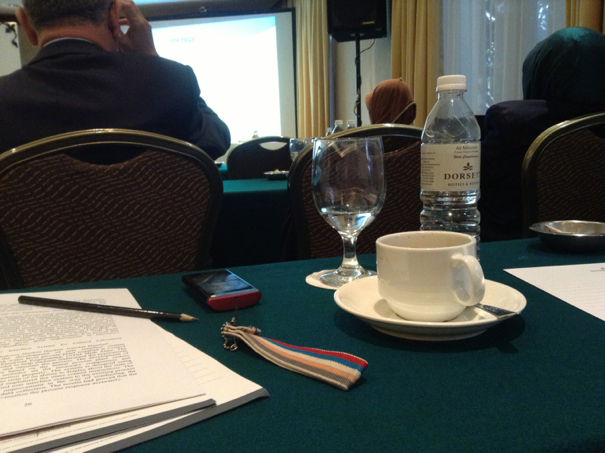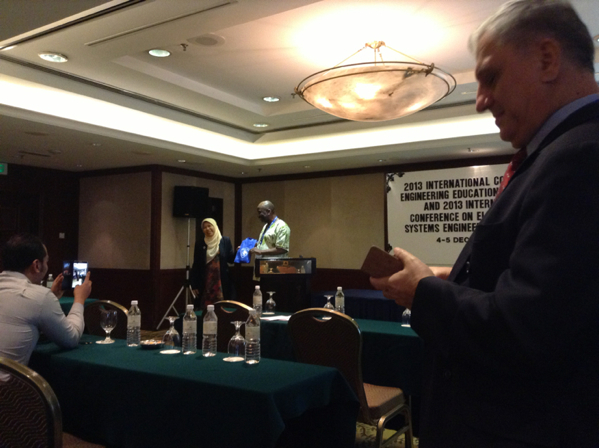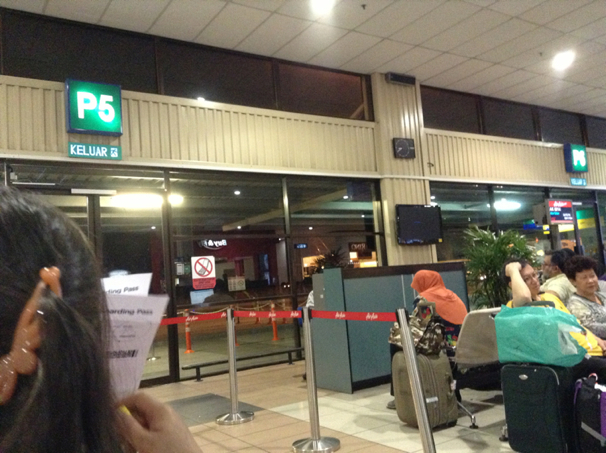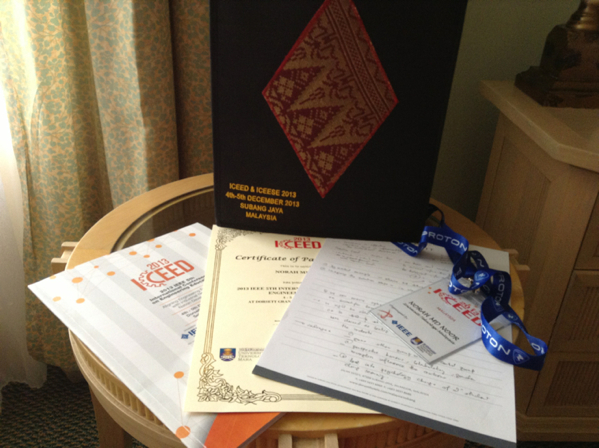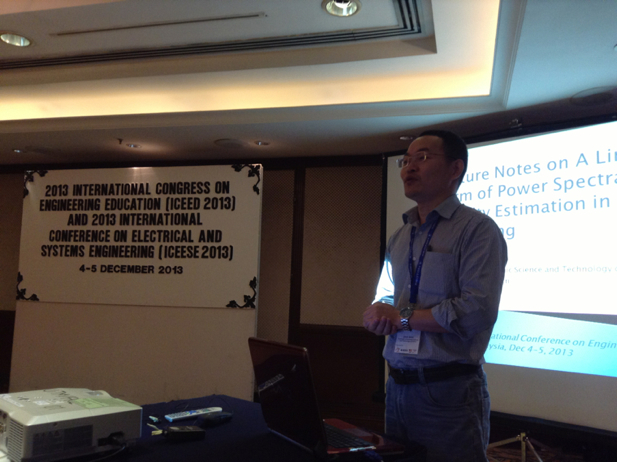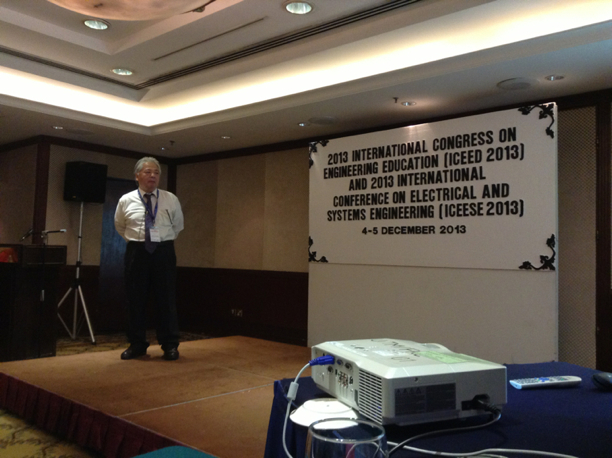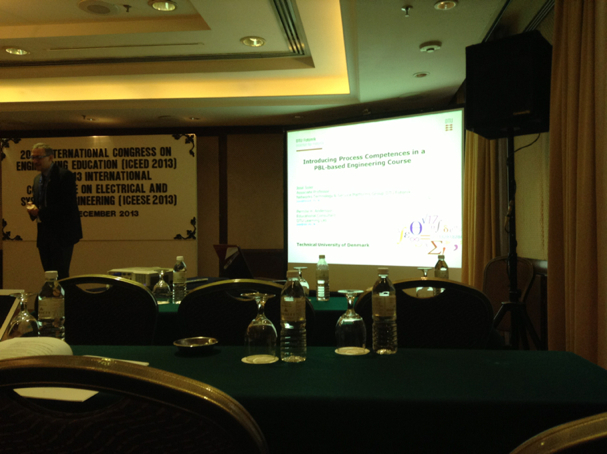As i inform earlier in my previous post that I attend ICEED 2013 conference to present my paper. For your information, all paper presented in this conference will be indexed in IEE Explore which is included in SCOPUS and ISI.

My paper presented during this conference is “The framework for Learning using Video on Cognitive Load Theory among Visual Learners” written by Me and my students, Noor ‘Izzati Hamizan and Radhiah Ab Rahim.
Abstract for my paper is as follows:
Using video for learning is no longer extraordinary in the world of education. Many researchers have shown that visual learners enjoy the use of video. However, which video will best grab their attention? This research was conducted to investigate the best framework for learning using video among visual learners. In order to do so, three different videos embedded with Cognitive Load Theory were selected by researchers. Then, 23 students from varied faculties at University Technology Malaysia (UTM) were selected to answer the Visual, Audio and Kinaesthetic (VAK) Learning Style Test. Nine visual learners were then identified among these respondents and invited to answer the questionnaire on perception of learning using video based on cognitive load theory. Data were analyzed using qualitative measures and content analysis. The findings show that visual learners love videos with less than six minutes’ duration, high definition visual quality, simple delivery language and a slow delivery method. All of the visual learners preferred to use video before entering class, which synchronizes with the flip classroom strategy. Hopefully, this framework can be used by educators to develop their own video-based learning materials.
This paper can be found in IEEE Explore,
IEEE Catalog Number :CFP1368H-CDR
PROCEEDING ISBN : 978-1-4799-2333-5
DOI : 978-1-4799-2332-8/13
Some suggestion on how the research can be improved by the fellow collegue during my presentation were as follow:
1. Use another group (kinaestetic or Auditory learners) as the control group to see the differences and similarity using the same assesment tools.
2. Should also look into bacground of the learners such as gender, course, etc that might influence the results.
3. Try to look into the psycology aspect on the Cognitive Load of the learners and their performance.
